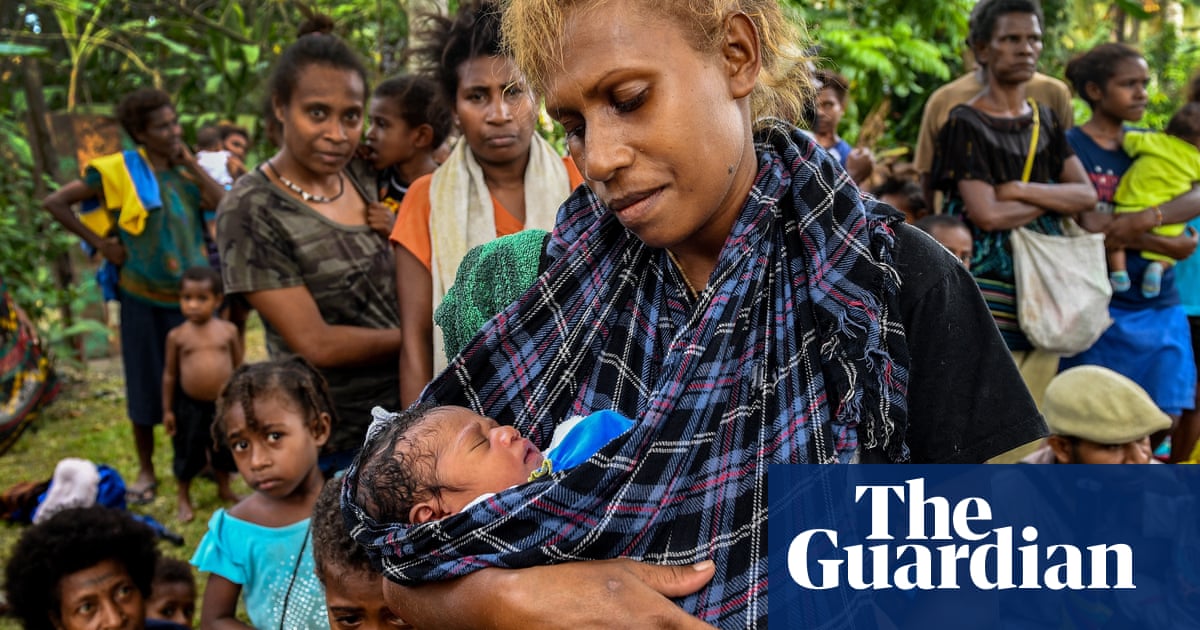Any cut in UK funding to a global vaccination group would damage soft power and could make British less resilient to infectious diseases, as well as causing avoidable deaths among children, leading vaccine and aid experts have warned.
Scientists including Sir Andrew Pollard, who led the development of the Oxford-AstraZeneca Covid vaccine, said a major cut in money for the Global Alliance for Vaccines and Immunisation (Gavi) could also make the UK less able to respond to a future pandemic.
TheForeign, Commonwealth and Development Office(FCDO) has not yet set out its future funding for Gavi, a Geneva-based public-private organisation that has vaccinated more than a billion children in developing countries.
The UK has previously been one of Gavi’s main funders, providing more than £2bn over the last four years. But with the UKaid budget cut back from 0.5% of gross national income to 0.3%and the focus shifting towards bilateral aid the expectation is that there will be a major reduction at Wednesday’s spending review.
Pollard, who leads the Oxford Vaccine Group, said that as well as continuing to save lives in poorer countries, there was a self-interested case for continuing with similar levels of support.
“It’s a safer place, obviously, for people who are in situations where they wouldn’t have been able to access these vaccines without the government support, but it also makes it a safe place for us, because it’s acting as part of the shield that we have against the spread of infectious diseases around the world,” he said.
A number of the vaccines used by Gavi originated in the UK, Pollard said, such as a new vaccine for malaria co-developed by Oxford University, and this meant the expertise and infrastructure were in place when Covid descended.
“The Covid vaccine was developed on the back of years of funding, both from the UK funding sources of government, Wellcome Trust and so on, as well as international funders that put teams of people working on vaccines here in Oxford so we could then respond when a pandemic happened,” he said.
“If we weren’t doing this type of work, having the infrastructure and capabilities in the UK, we wouldn’t have been in a position to have such an impact so early in the pandemic against that virus.”
Dr Sandy Douglas, senior vaccinologist at Oxford University’s Jenner Institute, who led efforts to scale up production of the Covid vaccine, said Gavi was known as one of the most cost-efficient of all aid projects, with one estimate suggesting a child’s life was saved for every £1,200 spent on it.
“There really aren’t very many ways of spending money anywhere in the world that can save a child’s life for so little money, and do it scalably so hundreds of thousands of lives, millions of lives, are saved over time,” he said.
“The withdrawal or reduction of British funding to Gavi is going to result in the avoidable deaths of many children. Labour played a leading role in establishing Gavi, and Gordon Brown designed the financing mechanism that helps it to operate. I think it’s something Labour should be proud of, among its greatest achievements since the NHS, probably.”
Moazzam Malik, chief executive of Save the Children UK, who was previously director general for Africa at the FCDO, said the UK had traditionally been “a very active player” in multilateral aid efforts such as Gavi and the Global Fund, which focuses on HIV/Aids, tuberculosis and malaria.
Pulling back from this would be noted internationally, he said: “People kind of appreciate that leadership. And if the UK decides to take a much more limited position, what the world would see from that is a sense of the UK pulling back.”
Gavi’s statistics show that it has vaccinated more than 1.1 billion children in 78 countries in its 25 years of operation, preventing nearly 19 million deaths
AnFCDO spokesperson said Jenny Chapman, the international development minister and peer, had set out that “global health is a priority for this government and is a key issue as we modernise our approach to international development.
“Whilst we would not comment on the size of future pledges before announcing them, we continue to work with our partners, including Gavi, on this crucial issue.”
